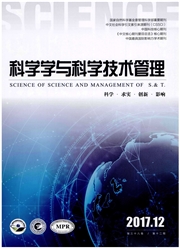

 中文摘要:
中文摘要:
中国的生产性服务业存在着明显的空间集群倾向。在运用指标评价法测度知识存量的基础上,将空间地理距离、接收方知识吸收能力等因素纳入生产性服务业集聚的空间计量经济学模型中,利用中国286个城市数据就我国局域知识溢出与生产性服务业集群及其关系作了实证检验。研究结果表明:我国生产性服务业集聚有较强的空间依赖性和正的空间溢出效应。知识存量和知识溢出对生产性服务业集聚有显著正向影响;人力资本门槛假说成立,知识溢出的效果受到地区人力资本水平和吸收能力的影响。各地方政府需要加强各相邻地区间的服务业合作,促进自主创新与知识溢出的有机结合,加快现代服务业区域一体化的进程,促进区域服务业协同发展。
 英文摘要:
英文摘要:
There exists obvious clustering propensity in China's regional productive service industry. The index-evaluation method is employed to measure regional knowledge stocks. Considering the geographical distance, knowledge-absorptive capability, and regional circumstances, a dimensional-extended model is constructed to make an empirical analysis on local knowledge spillovers and productive service industry clustering in China. The main conclusions are as follows: there is a strong spatial dependence and positive spillover effects of space in productive service industry clustering in China. knowledge spills over the regions and accelerates the productive service industry clustering; human resources threshold theory comes into existence, namely, regional human resource and knowledge-absorptive capability make an impact on the knowledge spillover.
 同期刊论文项目
同期刊论文项目
 同项目期刊论文
同项目期刊论文
 期刊信息
期刊信息
